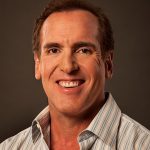 About a year ago, I gave a lunch talk to a group of family lawyers. I talked about drug addiction. Everyone nodded. I talked about alcoholism, and everyone knew someone. I talked about my two decades plus struggle with anorexia, then bulimia dating back to my freshman year at Penn State, through law school, and while a practicing attorney. People looked at me like I was from Mars. I asked for a show of hands of how many in the room had never heard a male actually talk about having an eating disorder. Many hands went up.
About a year ago, I gave a lunch talk to a group of family lawyers. I talked about drug addiction. Everyone nodded. I talked about alcoholism, and everyone knew someone. I talked about my two decades plus struggle with anorexia, then bulimia dating back to my freshman year at Penn State, through law school, and while a practicing attorney. People looked at me like I was from Mars. I asked for a show of hands of how many in the room had never heard a male actually talk about having an eating disorder. Many hands went up.
It was nothing surprising. Even in 2016, eating disorders are very stigmatized and stereotyped as a shameful “female issue.” While I am not aware of any statistics within the legal profession, eating disorders do not discriminate by professional demographic, so of course there are both men and women struggling both as practicing attorneys and law students. The most recent study indicates that about 30 percent of all those struggling with an eating disorder are male.
What causes eating disorders? We know that they can be up to 50 percent or more genetically based with countless environmental factors that can trigger one. Stress and the feeling of being overwhelmed, two common emotions in both law school and the practice of law, can play a role.

[E-BOOK] 5 AI Productivity Hacks To Save Time And Streamline Your Law Firm
Discover five practical ways to harness AI and eliminate busywork—so you can focus more on your clients and less on repetitive tasks.
For me, my issues dated back to childhood fat shaming and bullying as factors with strong correlation to eating disorders. My decent into anorexia, then bulimia, was eventually triggered as a freshman at Penn State in the fall of 1979. I would not go into recovery until 2007.
I can’t even say there was a stigma to having an eating disorder in 1979. To have “stigma” there has to be a public conversation. In 1979, there was none. I had never heard the word bulimia. I had never heard the term eating disorder. Singer Karen Carpenter had not yet died from complications from her battle with anorexia nervosa bringing eating disorders into the pre-digital national spotlight.
I just knew that throwing up made me feel normal. It told me I would finally be accepted and attractive the next day, that it would change the fat monster I saw in the mirror to someone who would be asked on dates. Finally kiss a girl or even just hold a girl’s hand romantically. Invited to beer parties and get asked to go bowling with the other kids. When the bulimic act was complete, however, the guilt set in. The guilt of a “dirty secret” that I did not understand. I only understood that incredible, momentary high of acceptance.
The subsequent guilt was as overwhelming as that high. I was a “man.” Men don’t throw up their meals. Men are not ashamed of their reflection in the mirror. I had to have that high again to forget all that. I would continue to crave it for the next 27 years of my life — the life of a bulimic.

Do Law School Rankings Affect Your Choice?
Share your insights in this brief survey.
Through dealing with the co-occurring drug and alcohol issues and an intensive therapy program, I was able to pull myself from the brink of the addiction and eating disorder abyss, make peace with myself and my body, and live a productive, happy life. Not everyone is that lucky. Eating disorders have the highest mortality rate of any psychiatric illness.
I know that speaking up and seeking help is easier said than done. It took me nearly 30 years to fight through my fear of ridicule, feminization, and judgment before I finally took that first step into recovery. The biggest surprise about coming forward and getting help? When I did, I found only acceptance, caring, and love. People wanted to help.
If you are suffering in silence as a law student or practicing lawyer, know that recovery is possible, but like with addiction, you have to take that first step forward regardless of the type of eating disorder. I was bulimic and exercise bulimic (compulsive exercise with the primary goal of offsetting calories). Maybe you are dealing with one of those or the fastest-growing eating disorder, binge eating disorder.
Like addiction, eating disorders are not a choice. They are a brain-based illness. They are no one’s fault. You have to fight through that feeling of shame and tell someone. Shame is normal. I get it. In a profession where having an eating disorder will be stigmatized exponentially worse than having a drug or alcohol problem, it’s so much easier to take the path of least resistance of silence whether it’s you, your spouse, child, or someone you know.
Whether you are male or female, choose the harder path of recovery. Choose the courageous path of recovery. Reach out to people who have been there. In the legal profession or in law school, there may not be many and there may be a wall of silence around those who are suffering. Reach beyond that. If you are in law school and part of a larger university, reach out to health services. Many schools now have wonderful eating disorders treatment services. If you’re at a stand-alone school, there are many excellent treatment providers out there. We have more resources today from both a treatment and educational standpoint than I could ever dream about in 1979.
If you are not ready to tell someone, start by educating yourself. I have listed some excellent resources below. Reach out to me. Start now. It’s worth it.
- National Eating Disorder Association
- Eating Disorder Hope
- Binge Eating Disorder Association
- Project Heal
 Brian Cuban (@bcuban) is The Addicted Lawyer. A graduate of the University of Pittsburgh School of Law, he somehow made it through as an alcoholic then added cocaine to his résumé as a practicing attorney. He went into recovery April 8, 2007. He left the practice of law and now writes and speaks on recovery topics, not only for the legal profession, but on recovery in general. He can be reached at [email protected].
Brian Cuban (@bcuban) is The Addicted Lawyer. A graduate of the University of Pittsburgh School of Law, he somehow made it through as an alcoholic then added cocaine to his résumé as a practicing attorney. He went into recovery April 8, 2007. He left the practice of law and now writes and speaks on recovery topics, not only for the legal profession, but on recovery in general. He can be reached at [email protected].